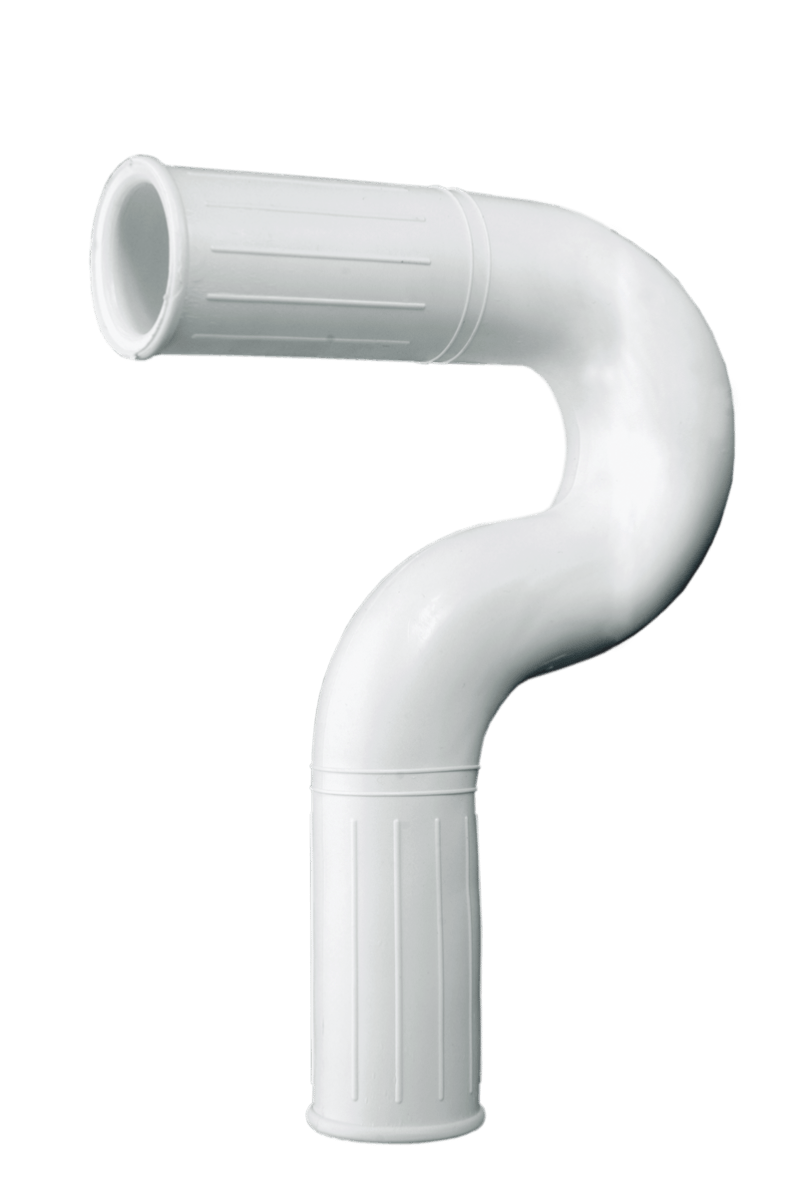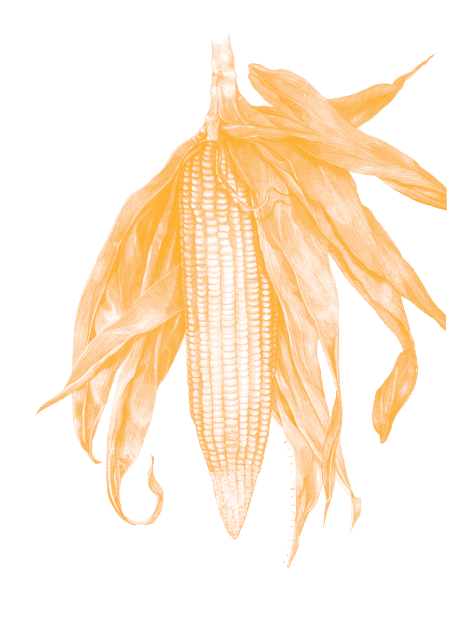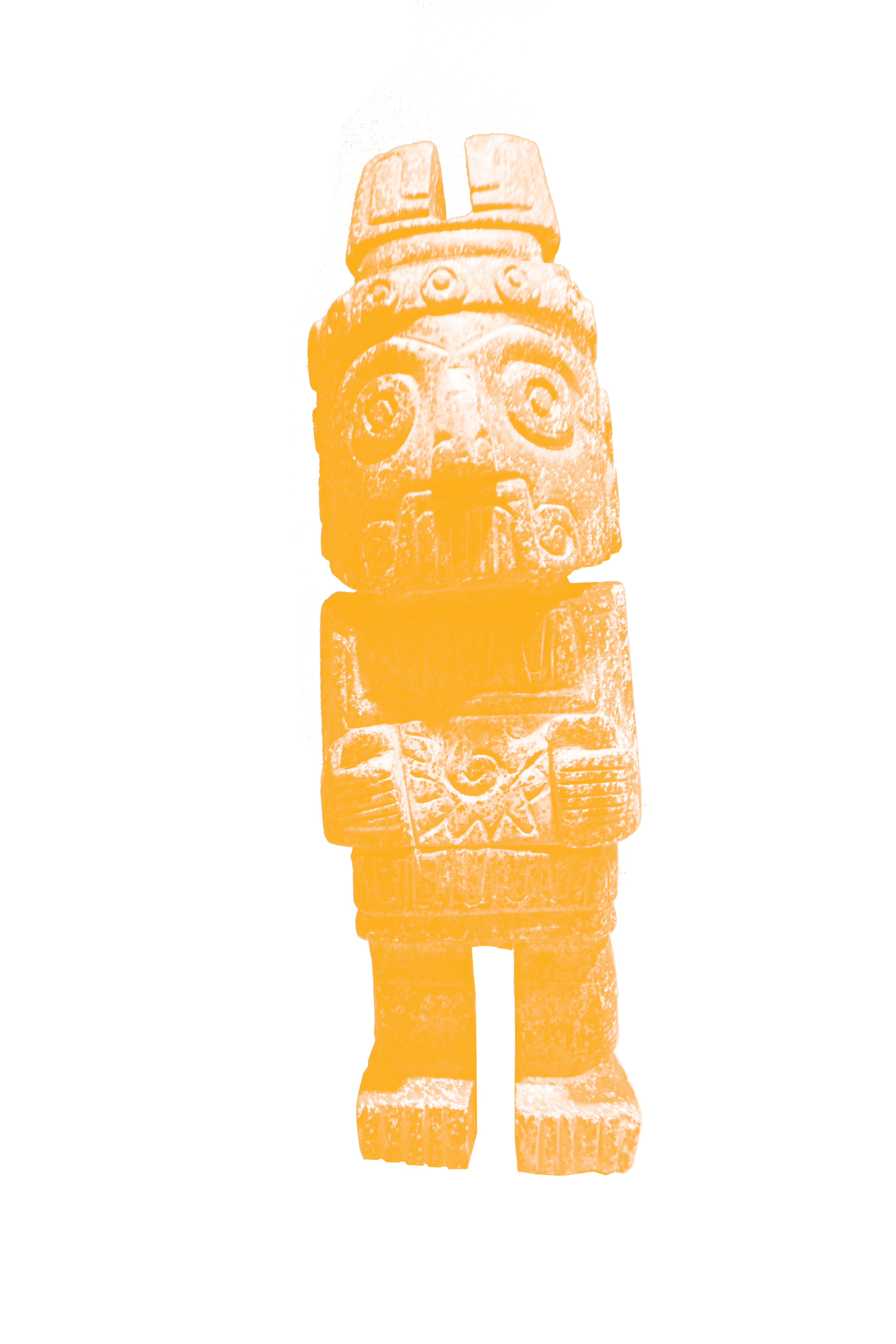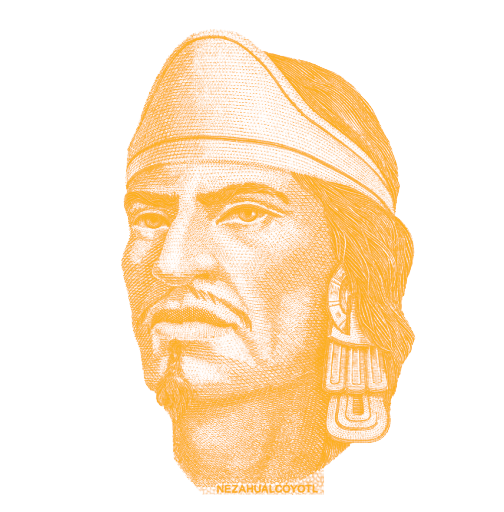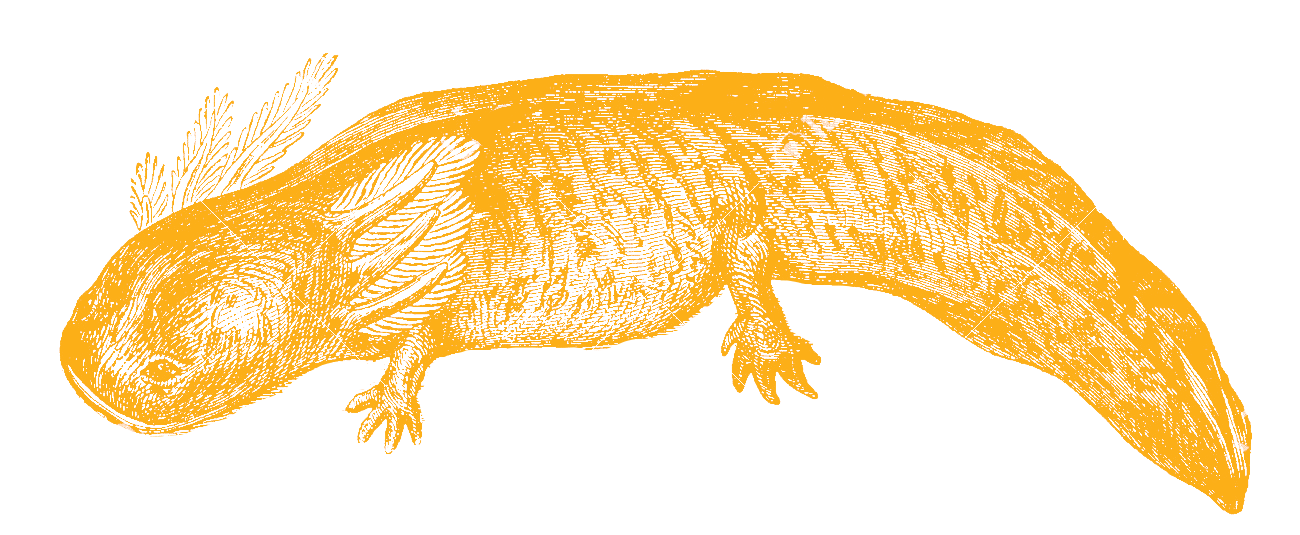Report, Echo 1
Túnel Emisor Oriente (TEO) “Eastern Wastewater Tunnel”.
The largest sewage pipe in the world.
“. . . where are we going, ay, where are we going?
Will we be dead there or will we live yet? . . .”
![]()
![]()
TEO and the Excess of Concealment
Túnel Emisor Oriente (TEO) “Eastern Wastewater Tunnel”.
The largest sewage pipe in the world.
“. . . where are we going, ay, where are we going?
Will we be dead there or will we live yet? . . .”


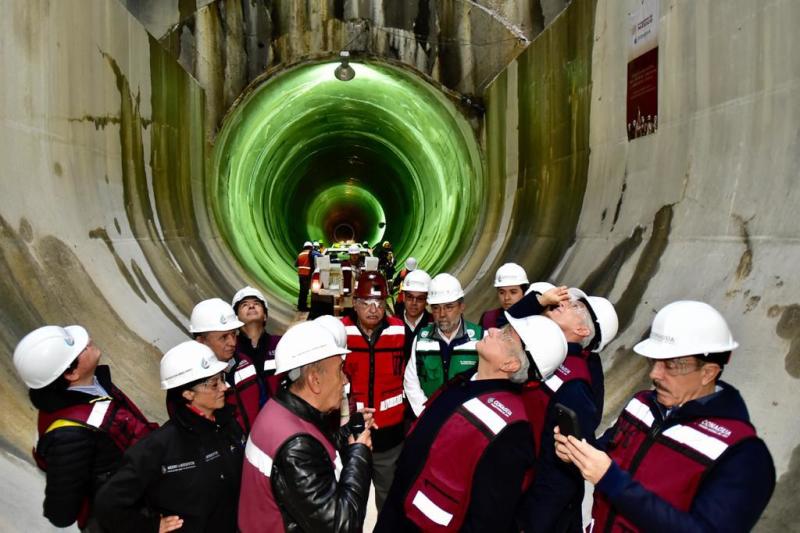
Current President, Andrés Manuel Lopez Obrador with members of his cabinet and governors of neighbor states visiting the TEO during it’s official inauguration.
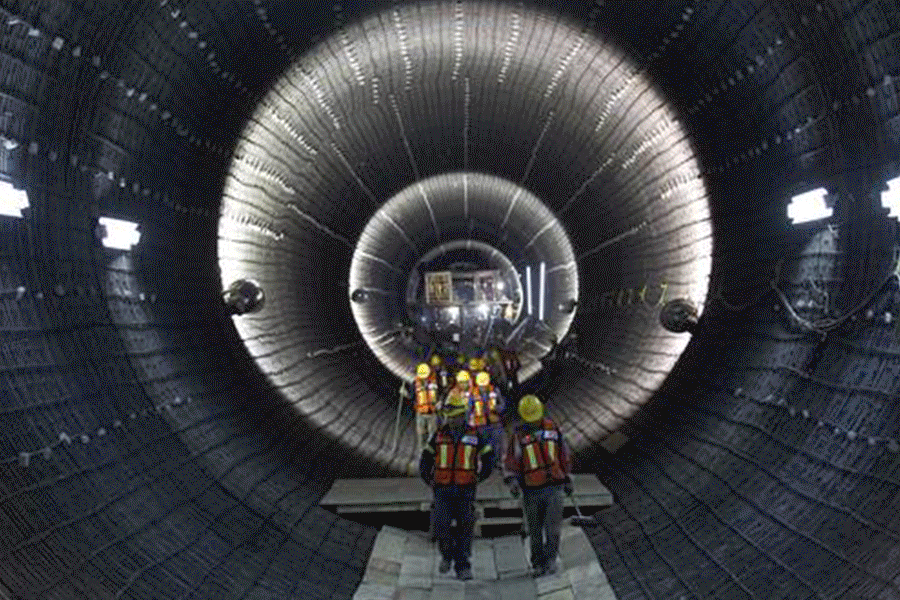

Progress report from former Mexican president Felipe Calderón Hinojosa and Mexico State governor at the time, Enrique Peña Nieto (Peña Nieto would become the President of Mexico after Felipe Calderón).
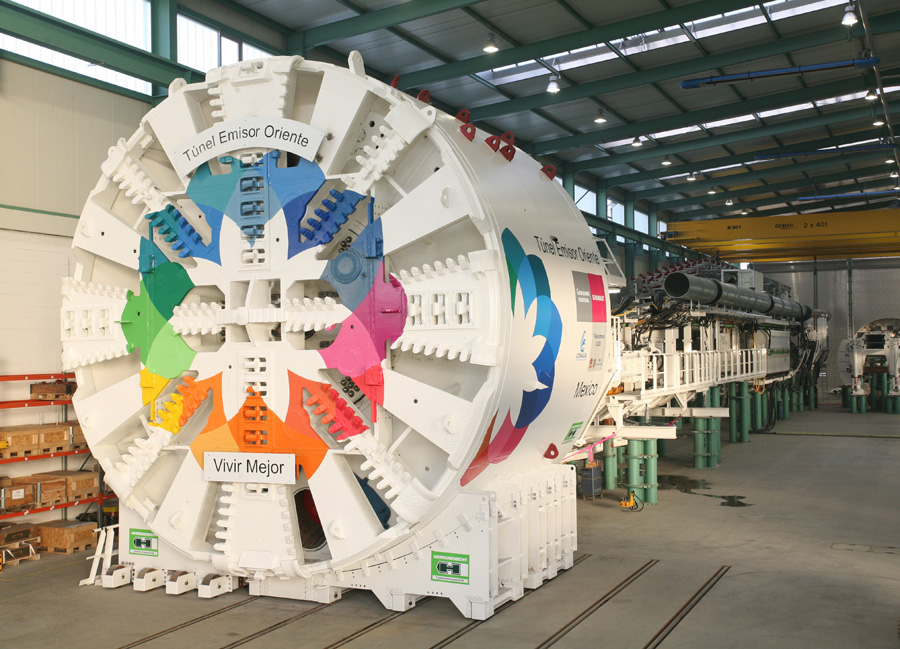
Boring Machine with branding of the “Vivir Mejor Program” (Better Living), initiated by Felipe Calderón during his tenure.
Mexico City’s Rectum
The Túnel Emisor Oriente, is the latest work of engineering that deals with the consequences of modern development in Mexico City. Designed to manage flooding, the TEO carries 150 thousand liters of sewage waters and rainwater per second into the EDAR-Atotonílco, one of the largest water treatment plants in the world. After 12 years in the making and tripling its cost, the tunnel and the water treatment plant were officially inaugurated in 2019. Both works, are expected to solve a centuries long problem of flooding in the city and a more than 100-year-old dispute with the Otomí-Ñhañhu population of the state of Hidalgo. These communities have been dealing with Mexico City’s black waters polluting lakes and rivers while shattering their economies since the early 1900’s. The State shitting over the country’s indigenous population does not come as a surprise.
But, the expectation to solve these problems and their tangential turmoil with a 62 KM pipe puts forward the political undertone of engineering and design as devices for the production of silence. This assertion, does not ask to discredit the enterprise, but to question its political manipulation and to propose an approach that understands the claim of modern technological development as an earthbound that will leave everything unchanged as something yet to be animated, possessed and excreted in ways beyond its current managerial imagination.
For a future that is chimeric in its technical possibilities to be set in motion, engineering devices should be expropriated to make what has been hidden reveal its catastrophic possibilities (in a mathematical sense) and create languages of shape shifting desires. Desires that take finitude and the rotting of life as fundamental elements of social and political arenas.
‘Nahpa bi thogi
Kä ro tsi minthe bi munts’igihe
njaua bi mä
gi pädi gi föhkihe
pexo ‘bu hingi mähkigihe
‘bu gi hyegidu da ñut’i ya ‘ña’ñu
xo go möhme
go tuxihe ro dehe
pa gi tunthehu
ya hingi ‘mufu ra zö
xo gi nuhu di ‘yoti ya tsi zanthe
gi nuhu di thehya tsi möi
gi huhu di ‘rnhu ro nzahki
gi nuhu di nxa ‘yu ro ‘ñuthe-
Aconteció un día,
el duende nos reunió y nos dijo:
sepan cuidarnos,
más si no nos aman,
y permiten que entren los extraños
habremos de irnos.
Nos llevaremos el agua
para que tengan sed
ya no vivirán bien
mirarán secarse los berros
acabarse los peces.
Presenciarán la huida de la vida
Verán desaparecer el riachuelo.
It happened one day,
the goblin summoned us
and said:
take care of us,
even more if you don’t love us,
and allow the foreign in.
Or we will leave,
but we’ll take the water,
and you’ll live poorly,
you’ll watch the watercress dry,
the fish perish.
You’ll witness life fade,
you’ll watch the stream die.
Thaayrohyyadi, Otomí writer and intellectual.
